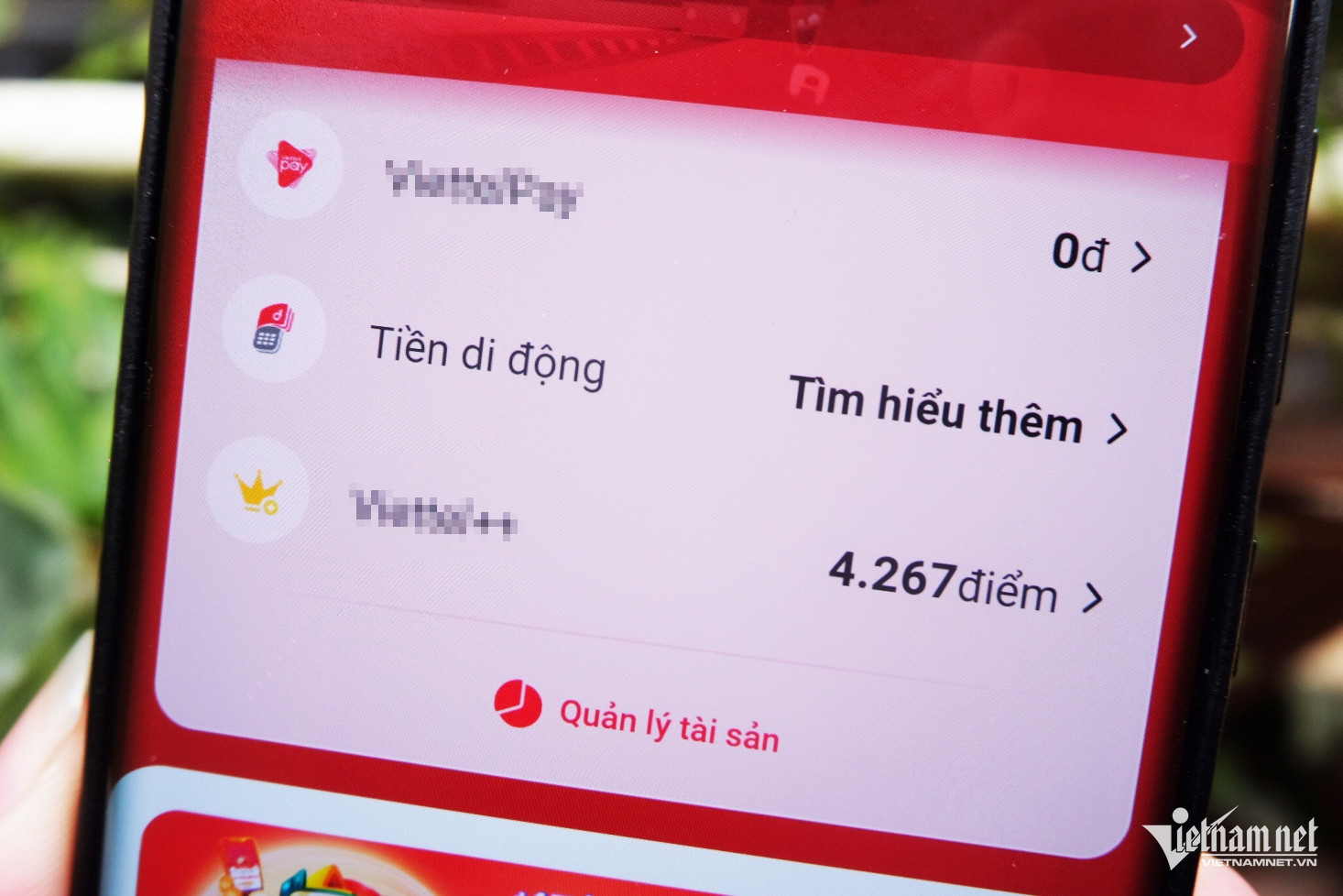
A Mobile Money account. Photo: Trong Dat
According to the latest figures from the Ministry of Information and Communications (MIC), the service has seen significant adoption in rural, mountainous, and remote areas, with over 6.3 million users, accounting for 72% of the total user base.
Mobile Money, a service allowing payments for small-value goods and services via telecom accounts, was initially launched under a two-year pilot program approved by the State Bank of Vietnam, from November 18, 2021, to November 18, 2023. The government has since extended the pilot period until December 31, 2024, under Resolution 192.
The Mobile Money pilot program aims to promote cashless payments, particularly in rural and remote areas where access to banking services is limited. Unlike traditional e-wallets, Mobile Money accounts are linked directly to mobile phone numbers, eliminating the need for a bank account. These accounts function similarly to telecom accounts but can be used for transferring money and paying for legal goods and services within Vietnam.
As of now, there are 275,879 Mobile Money payment points nationwide, an increase of 9.56% from April 2024. The total number of transactions (including deposits, withdrawals, transfers, and payments) exceeded 119 million, up by 8%, with a total transaction value of over 4.462 trillion VND (approximately 186.5 million USD), representing a 7% increase.
Globally, many countries have successfully implemented Mobile Money. For instance, Kenya's M-PESA model boasts 30 million customers, with a transaction value of 78.8 billion USD, significantly increasing financial access for nearly 83% of the population. According to the Consultative Group to Assist the Poor (CGAP), this service has boosted household incomes by 5-30%, lifted 194,000 families out of poverty, and enabled 185,000 Kenyans to transition from agriculture to business or retail.
Given the successes of the pilot phase, Deputy Prime Minister Le Minh Khai has tasked the State Bank of Vietnam with collaborating with relevant ministries and agencies to develop comprehensive legal regulations for Mobile Money. This directive came during a meeting in May 2024.
The government’s directive emphasizes a thorough assessment of the pilot program's results, including detailed data and situational analysis. It also calls for evaluating the impacts, benefits, risks, and implications for related stakeholders, payment systems, banking operations, and national financial security. The proposed regulations must ensure the security and safety of banking transactions, comply with legal and procedural requirements, align with technological and international developments, and safeguard the interests of all involved parties.
